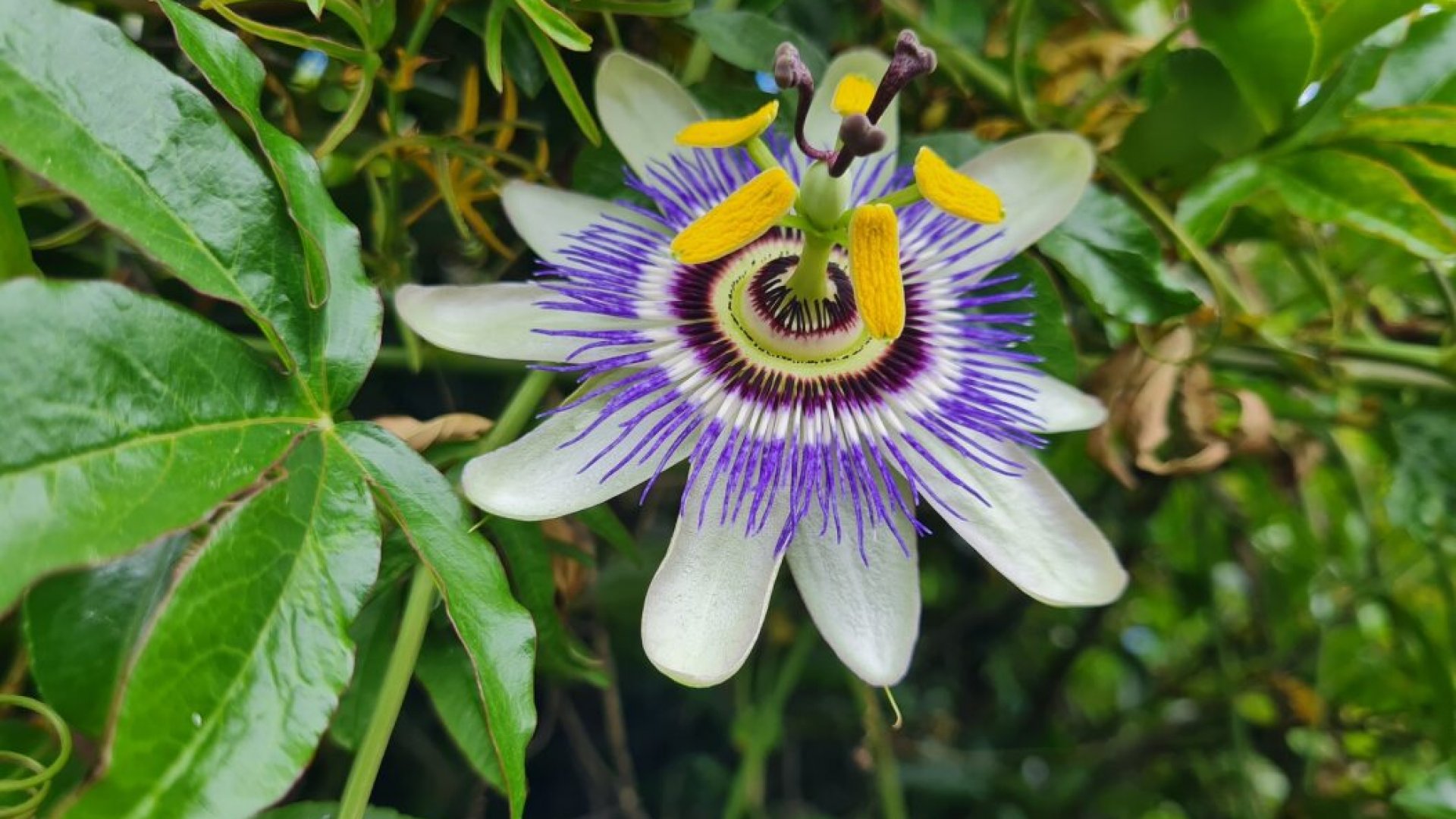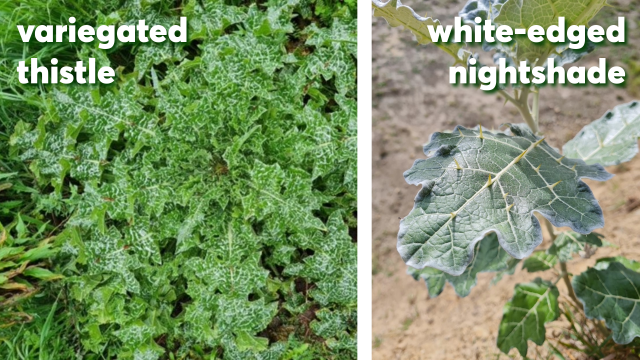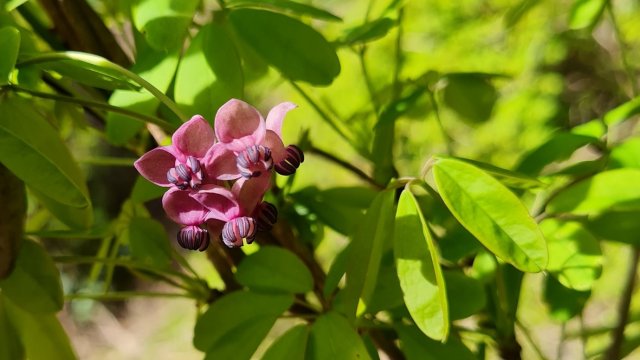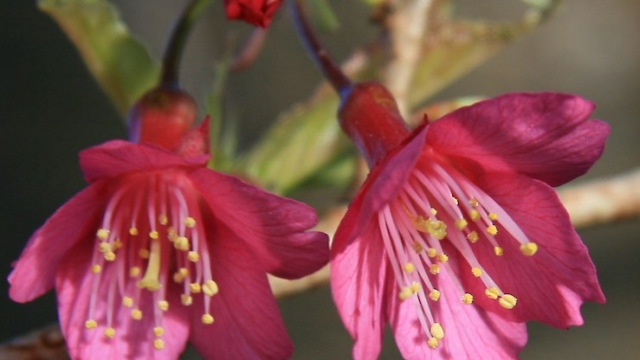It’s blue passion flower time of year again!
08/12/2023 3:49pm
Nelson City Council’s Biosecurity team has been working to stop the spread of this notorious vine weed over the last two years. Don’t be fooled by the pretty flowers – this rampant climber smothers trees and gardens. Fortunately it is not yet widely established in the region and we want to keep it that way.
The striking flowers and 5–7 lobed, hand-shaped leaves make it easy to identify at this time of year. From mid-summer, the vines produce small round orange fruit. The fruit aren’t good to eat but can help to identify vines hiding in the tops of hedges and trees.
The main area affected by this weedy pest is Nelson South between Konini Street, Franklyn Street and Hampden Street. This is a reminder to affected landowners to remove these plants ASAP so they don’t get a chance to make fresh seed. Hand-pulling is effective if you can get the roots, but larger ones are best treated with a spot of herbicide on the cut stem.
If you have this plant and aren’t able to deal with it yourself, please get in touch on 03 546 0200 or email biosecurity@ncc.govt.nz and we can arrange a visit to control this pest vine, free of charge.
We are really interested in finding any other sites where blue passion flower is growing. If you have seen this pest plant anywhere else in the region, please take a picture and report it, with the location, to biosecurity@ncc.govt.nz or via the Antenno app.
Note for identification: Blue passion flower is sometimes mistaken for two other common and closely related plants.
Black passionfruit is not weedy, but is commonly grown in gardens for its delicious, large purple fruit. The flowers are very similar, but the leaves of the black passionfruit are three-lobed and shiny.
Banana passionfruit vine is an established weed pest all over Whakatū Nelson. It has long pink flowers that hang down and leaves with three lobes. The large oval fruit are green-yellow when ripe. This vine smothers native vegetation and should be removed whenever possible but does not need to be reported.




